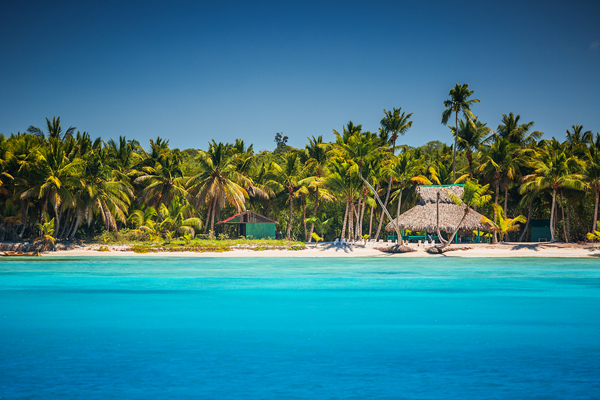
Thinking about moving to Punta Cana? Below we highlight some of the pros and cons of living in Punta Cana.
Imagine waking up to the sound of waves gently lapping against the shore, the scent of the sea mingling with the sweet aroma of tropical flowers. This is a daily reality for those who choose to make Punta Cana, a resort town located on the easternmost tip of the Dominican Republic, their home. Known for its stunning beaches, crystal-clear waters, and vibrant nightlife, Punta Cana is a paradise for many. But like any place, living here comes with its own set of pros and cons. Let’s delve into what life in Punta Cana truly entails.
Pros of Living in Punta Cana, Dominican Rep
One of the most obvious advantages of living in Punta Cana is the natural beauty that surrounds you. The town is home to some of the most beautiful beaches in the world, such as Bavaro Beach and Macao Beach. These beaches offer pristine white sand, clear turquoise waters, and plenty of opportunities for water sports like snorkeling, scuba diving, and sailing. Living in Punta Cana means having these incredible natural resources right at your doorstep.
Another significant advantage of living in Punta Cana is the climate. The Dominican Republic enjoys a tropical climate, with warm temperatures year-round. This means that you can enjoy outdoor activities and beach days no matter what time of year it is. The average temperature in Punta Cana is around 80 degrees Fahrenheit, making it a perfect place for those who love warm weather.
Living in Punta Cana also means being part of a vibrant and diverse community. The town is a melting pot of cultures, with a mix of locals and expats from all over the world. This diversity is reflected in the town’s food, music, and festivals. For example, the Punta Cana Carnival is a colorful and lively event that showcases the rich cultural heritage of the Dominican Republic.
For those interested in giving back to the community, there are plenty of opportunities to volunteer in Punta Cana. Organizations like the Punta Cana Foundation work to improve the lives of locals through various initiatives, such as providing clean drinking water, improving education, and promoting sustainable tourism. Volunteering with such organizations can be a rewarding way to contribute to the community and make a positive impact.
Finally, the cost of living in Punta Cana is relatively low compared to many other resort towns. While prices can vary depending on your lifestyle, it’s possible to live comfortably in Punta Cana without breaking the bank. For example, a meal at a local restaurant can cost as little as $5, and rent for a one-bedroom apartment in the city center is around $500 per month.
Cons of Living in Punta Cana, Dominican Rep
While there are many advantages to living in Punta Cana, there are also some downsides to consider. One of the main disadvantages is the language barrier. While English is spoken in many tourist areas, Spanish is the official language of the Dominican Republic. If you don’t speak Spanish, you may find it challenging to communicate with locals and navigate daily life.
Another potential downside of living in Punta Cana is the lack of certain amenities and services. While the town has basic services like grocery stores and medical clinics, it lacks some of the amenities you might find in larger cities, such as high-end shopping centers or specialized medical care. If you require specific services or products, you may need to travel to Santo Domingo, the capital of the Dominican Republic.
While the cost of living in Punta Cana is relatively low, the cost of certain goods and services can be high due to the town’s remote location. For example, imported goods like electronics or certain types of food can be expensive. Additionally, while public transportation is available, it’s not as reliable or extensive as in larger cities, so you may need to rely on taxis or rent a car, which can add to your living costs.
Another potential disadvantage of living in Punta Cana is the risk of natural disasters. The Dominican Republic is located in a hurricane-prone area, and while Punta Cana is somewhat protected due to its location on the eastern tip of the island, it can still be affected by hurricanes and tropical storms. It’s important to be prepared and have a plan in case of a natural disaster.
Finally, while Punta Cana is a vibrant and lively town, it can also be quite touristy, especially during peak travel seasons. This can lead to crowded beaches and restaurants, and a general sense of being in a tourist trap. However, there are plenty of quieter, more local areas to explore if you’re willing to venture off the beaten path.


